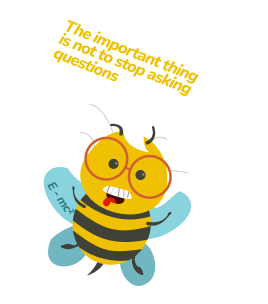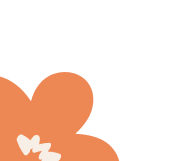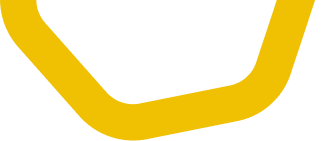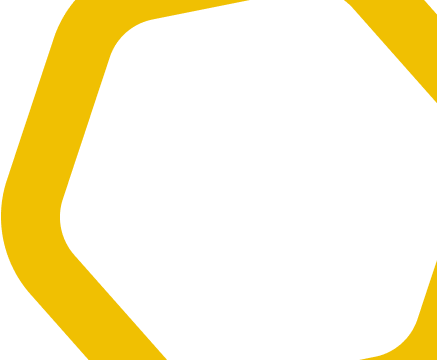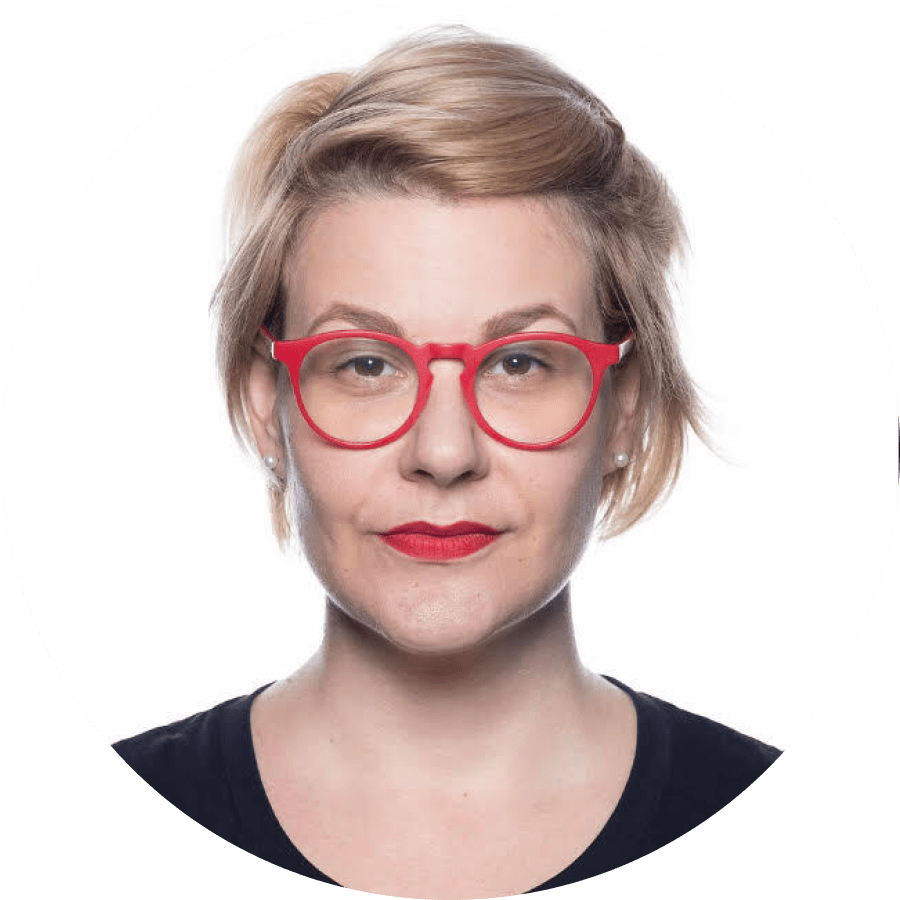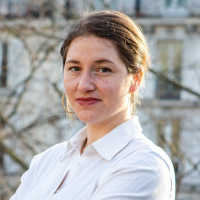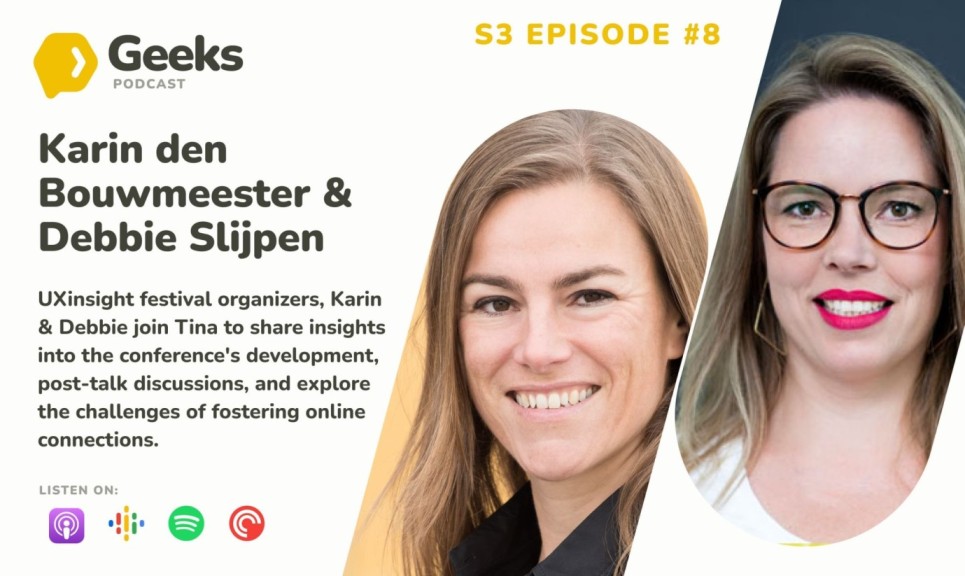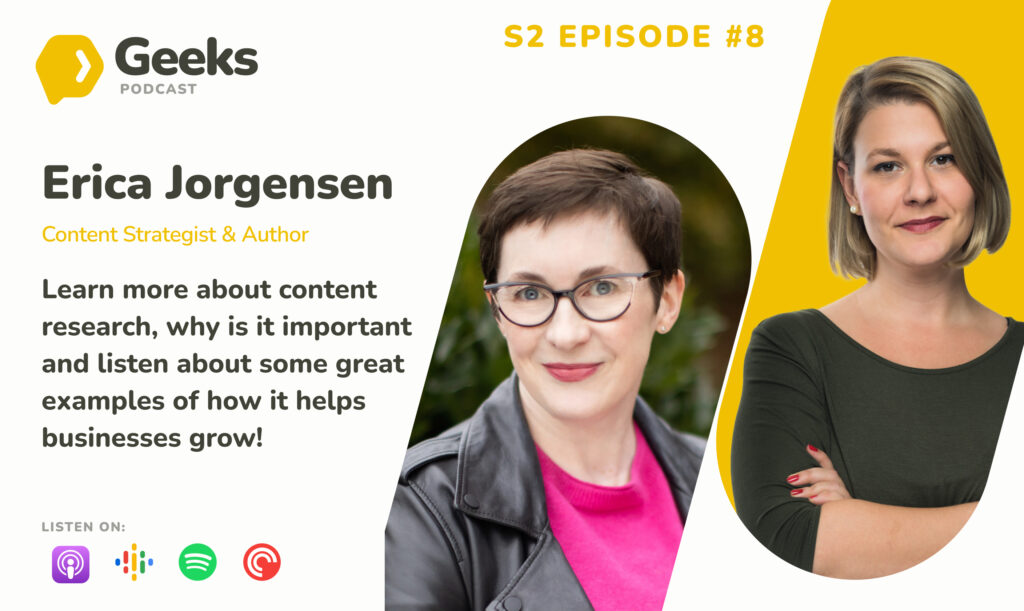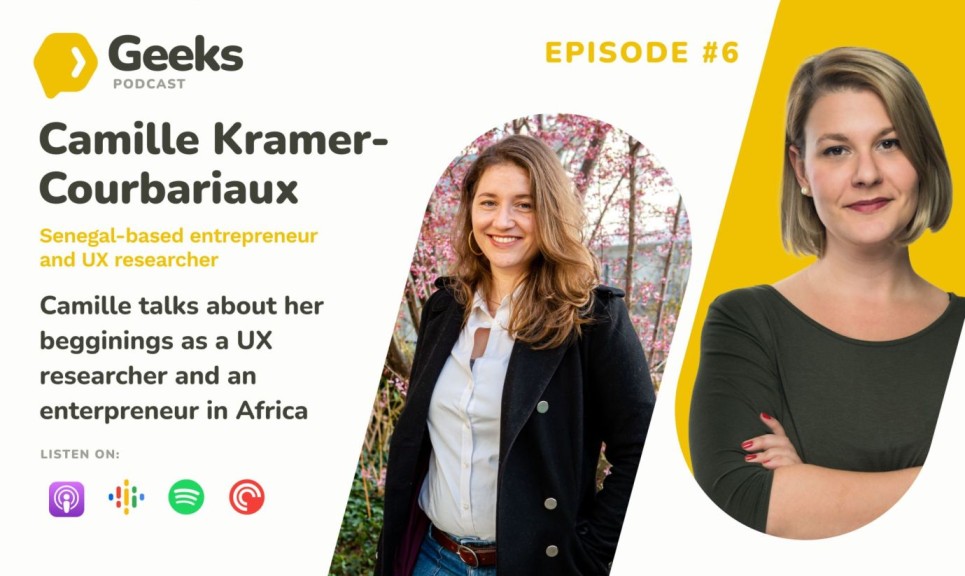Episode highlights
00:01:47 Ellie’s path to UX research
00:06:26 Origin and importance of the “State of User Research in Africa” study
00:10:26 Expanding research reach through design communities across Africa
00:11:19 Challenges in UX research: participant recruitment
00:15:01 Addressing recruitment with onboarding and follow-ups
00:23:26 Collaborations with Google, Stitch, and AgroMall
00:31:18 Where to follow YUX: LinkedIn and Instagram
About our guest Elizabeth Akpan
Elizabeth Akpan is a dedicated UX Researcher/Lead currently working at YUX Design. With a rich background that includes previous roles as a UX Researcher at Meta and internships as a User Experience Designer at African Leadership Academy and a Social Media Specialist at FirstTouch, Elizabeth’s experience spans diverse industries and countries, including Nigeria, Rwanda, Senegal, and South Africa. Her passion lies in comprehending people’s interactions and challenges with digital technologies, and she excels in translating these insights into valuable product enhancements. Elizabeth possesses a versatile skill set, including project scoping and management, quantitative and qualitative analysis, UX benchmarking, stakeholder engagement, moderated usability testing, exploratory research, workshop facilitation, research advocacy, and training. You can connect with her on LinkedIn to learn more about her expertise and accomplishments.
About our guest Camille Kramer Courbariaux
Camille Kramer Courbariaux is the Co-founder of YUX and the Director of YUX Academy. She specializes in user research and has a rich background in leading research teams and conducting field studies across diverse sectors. Her expertise extends to usability testing and facilitating research findings for UX/UI designers. In her current role, Camille oversees quantitative and qualitative research projects throughout West Africa, focusing on Human-Centered Design and UX methodologies. She leverages her understanding of African consumer habits to assist local startups and international clients, including UNESCO, UNCDF, AFD, IMF, Orange, Airtel, GSMA, and numerous startups. Connect with Camille on LinkedIn or visit the YUX website for more information.
Podcast transcript
[00:00:00] Tina Ličková:
Hello and welcome to UX Research Geeks. I’m your host Tina Ličková, a researcher and a strategist, and this podcast is brought to you by UXtweak, an all-in-one UX research tool.
Welcome to the second part of the two part series about UX research in Africa. In the first part, we spoke to Camille, the founder of YUX Design, and she will be today joined by Elizabeth, a researcher from this agency. Elizabeth has worked on many research projects across the African continent in various sectors, open knowledge, fintech, and agritech.
So tune in to learn more about her work, and the big state of user research in Africa study that Elizabeth conducted.
Maybe what I would do now, I would call Ellie into, and then we can switch to the state of UX research in Africa, or maybe to the story of how you met guys.
[00:01:06] Camille Kramer-Courbariaux: Yeah, Ellie is a typical example. We hired her, like we took her as an intern.
[00:01:12] Tina Ličková: And how did you know that Ellie is the right person? If you want to tell the secret.
[00:01:19] Camille Kramer-Courbariaux: That’s a good question. I think we didn’t necessarily know. I think at the time, Ellie, we hired you and someone else, but what we liked in the interview was the personality, the humbleness, the desire to learn, as I mentioned.
And the structure, I think. But then what happened was that she confirmed that, during her internship.
[00:01:40] Tina Ličková: Ellie, and what is your story? How, why did you even apply? And why did you step into such a business, this research?
[00:01:47] Elizabeth Akpan: Oh, okay. Okay so I guess maybe I’ll start answering first from how I got into UX research before I also talk about how I got into you.
So I studied computer science at the African Leadership University. And in my third year, I took a course on human computer interaction. And I, prior to that, I’d been writing, most of my courses were programming heavy, so I’d been coding, but then I saw this course about products and design, and I was like, okay, I think this is interesting, I’d like to do this.
And after that year, I took an internship as a product management intern in the start up year in Nigeria. So I went back to school, I finished, and I was very sure that I wanted to do something in UX design and research, particularly research, because I felt like it was very important to understand the users we are building for.
And I graduated in 2020, yes, and I was job searching. Some of the places I had applied to stopped their application then because of the pandemic, and it was just a rough get. So I was freelancing, right? As a social media manager, and in 2021 someone from my school’s career development team reached out about an opening at YUX, right?
And I was like, okay, I applied to YUX, I had the interview, I met everyone. Everyone was friendly on the call and also I actually had an assignment. Yeah, I had an assignment, but it was related, because the role I started in was like a UX analytics internship role, so it was related to that.
And I had to present the assignment and then I got in. Yeah, it’s been on since then.
[00:03:41] Tina Ličková: And this is also interesting to ask you both because this is important when it comes to the business, Camille, that you are based in Senegal. Elizabeth is in Nigeria. What are the countries you operate in? Just to understand the context.
[00:03:58] Camille Kramer-Courbariaux: That’s a good question. I don’t think there’s a definitive list. Okay- so we have colleagues in, I think I counted like seven countries. So Senegal, Kigbar, Benin, Togo, Nigeria, Rwanda. I think I’m forgetting one, but people are spread out. We do projects in all of them, like all of West Africa.
[00:04:26] Tina Ličková: Okay. Yeah.
[00:04:28] Camille Kramer-Courbariaux: A lot of stuff. Yeah. So we go and that’s also why our colleagues are spread out is because we do want people who have an understanding of at least their area. We will resort to hiring local contractors in some cases, of course, if we need to have someone who speaks the local language.
Mostly English and French covers a lot of the situations, but not all. And so yeah we’re a bit everywhere. And Nigeria, as you probably know, is a huge country in West Africa and pulls a lot of the economy. So it’s absolutely essential that we have team members there. We have a lot of projects over there.
And even if the projects are not in Nigeria, we can send the Nigerian team to a neighboring country. And it is, I think it’s also a good example that Ellie wasn’t hired to do UX research because that’s something quite common for us because people don’t know a lot of our jobs we’ll hire someone with the general idea of what we want them to do, but then we figure out with them what they actually want to do and what they’re actually good at.
And so there’s a bunch of people, who are working at YUX who are not hired for what they’re doing now and that comes with hiring people who are beginners in your sector and don’t really know. And I want to say it’s even larger than that, even though this doesn’t maybe concern Ellie’s case, but a lot of people in Africa study what their parents tell them to study or whatever sector they were forced into because of some weird school calculation system. It is very common that people don’t study what they’re passionate about. And we give them the space to explore. And, realize what they want to do or not. And with Ellie, it turned out even if what she was hired for didn’t really work out she had this great capacity of structuring and managing a project and was really interested in UX research.
And so she wound up doing that and we’re very happy about that.
[00:06:26] Tina Ličková: And how did it come to a decision late? Let’s make the study state of user research in Africa.
[00:06:34] Camille Kramer-Courbariaux: I’ll let Ellie answer that one.
[00:06:38] Elizabeth Akpan: I think how we came to that is: we’ve noticed that UX research is growing on the African continent.
Now when they started out, for instance, there was not a lot of UX research work, UX design and research work being done in Senegal, but for most of the continent it is still very nascent as well. So we decided to try to document what’s going on in the continent, particularly research as well, because as Camille also mentioned, we have a lot of people who are talking about UX design, UI design, but not so much about research. And so we decided to say, okay, let’s talk. Let’s understand what’s going on across the continent. As well as let’s also see from our point of view, I was still like six months into YUX then. But also see from a point of view, from the experience of other researchers that you see if the problems they’ve experienced as well and see if they have any common thread. And yeah, also try to make sure there’s documentation about research and speaking to other people from the continent as well. So that was the main drive for the research. And that was why we decided to start the research.
[00:07:48] Tina Ličková: We talked about it a little bit- maybe the listeners will also be asking this question because when I would be doing a state of user research in Europe it would be super different from country to country. If I look at the state of user research in Africa, it’s also a continent, very different.
There are different cultures. So how did you approach this?
[00:08:12] Elizabeth Akpan: Okay. So the approach from last year was an approach where I, and I still, we learned a lot from. So the first thing we had a survey where we sent it out to people who were doing research on the continent, not just research, not just UX researchers, but like product managers, UX designers who have insights into how research is done in the organizations or where they work.
And that was the first approach. So we’ve got responses from about 18 countries, 18 African countries. And we also spoke, we had one on one interviews trying to understand in depth, how do people in different African countries conduct research? What tools do they use and what are the challenges they face?
Like having a one hour conversation with different people, designers or researchers across the continent. And in that, we also spoke to people from about, I’ll say, eight countries or eight to nine countries. We didn’t, we couldn’t get the reach of everyone on across the continent, but we got into as many countries as we could get answers from and something we learned from that was that, towards the end of the research trying to promote the study and sharing it with the public, we decided to partner with communities and we saw the pool that brought so something we could have done, better or earlier was since I was leading that project, something I could have done better was, partnering with communities and seeing how that can bring more people, bring more responses or reach more people on the continent. And this year, for this year, we’ve tried to map out like the different design communities across different regions of the continent. So we can reach out to them and try to partner with them and get more responses, get more people interested in speaking about the experience so that our research can reach more countries and can speak to people from more countries about the state of UX research. And yeah that’s one way we are looking at it.
[00:10:26] Tina Ličková: And what communities are we talking about? And if I understood right, you are planning a new study to go a little bit to see also the progress in different countries. But what communities do you want to approach? Maybe there will also be some listeners from Africa and can Yeah, reach out to you later on.
[00:10:44] Elizabeth Akpan: So a lot of the communities that we spoke to last year were friends of Figma communities. We partner with the one in Lagos, but this year we know they have different chapters in other countries. So it’s nice to speak to other friends of the Figma community. We also partner with UX Kitchen Nairobi, but basically design communities where they talk about design organized events. Yeah. Many of such communities across the continent, those are the kind of communities we are looking out for.
[00:11:12] Tina Ličková: And now to the content of the study, what are the biggest or the highlights that you learned in the study -in the previous one?
[00:11:19] Elizabeth Akpan: So some of the highlights for me from the study were basically some of the challenges that researchers face. So as I mentioned, back then I wasn’t really deep into research. So I just completed my internship and this was another project I was getting onto. So yeah, one of the challenges is like participant recruitment, trying to recruit participants was a big challenge for UX researchers.
And as I’ve gone on to work on other projects myself, I’ve seen how challenging recruiting the right profile for research could be across the continent, especially if you are conducting research. Something else was wanting to get resources on what was happening in different African countries we got to research.
For instance whether you spoke to someone in let’s say – someone in Uganda, yeah, at the time mentioned that, since he was leading a team that’s an African, it’s a team that’s based out of Uganda. But now they have different teams in different countries, you’d like to be able to see, since you’ll be leading research on what could affect these different countries, see resources on how research is, what are the nuances of people in different African countries. Our research is done there to speak to people and get insights from them.
Because interviewing people from, let’s say, Nigeria might be a little different than interviewing people from, let’s say, Uganda or Rwanda. Of course, it’s the same continent, but there are sociocultural differences. So they would the guy, the person who had mentioned that they’d like to see other researchers across the continent, document their research, most share what they are struggling with, and basically just view the body of knowledge, right?
They can fit, because they mentioned that they find some resources or a lot of resources, in the Western context, which can be good, but they might not necessarily fit in the African context.
Yeah, I guess that’s one thing in the study we encourage more people to do, write about their research and also their challenges as researchers or their learnings as well, not just their challenges, because I’m sure people are learning things as well.
So that was one thing we learned. Something else they mentioned about tools there are some tools online that you can recruit users for. May not necessarily work for the African context. Or like tools that transcribe audio or transcription tools that may not necessarily transcribe the African, the different accents we have in the African countries, in African countries, even if they are speaking English.
So that was another thing people mentioned, which was very interesting for me. And also, yeah, something else that could happen like internet connectivity, especially if you’re conducting remote research and of course, getting executive buy-in getting stakeholder buy in- that was something that was a challenge convincing people about the value of research. So yeah. Really interesting for me.
[00:14:21] Tina Ličková: The executive buying that’s something that I think it’s- on every continent all around the world, something that we will always a little bit struggle with and that every researcher at least once in a lifetime encounters, I think from what I hear also in communities. But you were telling me that there are some problems with the recruiting.
Can you maybe explain it there? Where is the problem with recruiting people? Because, it’s a problem in Europe sometimes when you are recruiting specific target groups. But where is the problem exactly when it comes to the 17 or 18 countries that you were researching in?
[00:15:01] Elizabeth Akpan: Okay. So some people had mentioned when they recruited people, yes, some people may not show up and they’ll agree to the interview and not show up.
And sometimes even when they show up like I mentioned, that’s where internet connectivity comes in, right? For instance, if it’s like a remote research and their internet might be dropping off going off and on, that’s and they can’t really fully participate and you have to like, maybe interview another person or replace them with another person.
So I think someone we spoke to last year, who is a UX designer in FinTech in Nigeria, but then a UX designer in Israel also does UX research. I’d mentioned that they, something they did was add backups for each research, just for each interview, just to make sure that they are catering to everyone or they cover the number of profiles they will put.
So the thing is getting people to show up. That’s one thing that has come up. And also being especially- if the research is remote, factoring internet connectivity and making sure that was that’s catered for and also there’s something else. They had mentioned the thing about incentive and just making sure that the person it’s not just showing because of the incentive, but showing up and being willing to speak.
And even, yeah, at YUX for instance, something that we do is try to onboard interviewees, like whoever we are interviewing or whoever we’ve recruited right before the interview, we try to onboard them first just to make sure they are clear and, they try to understand the expectations or the what the research would be like, or maybe they have a good internet connection, they understand how to use maybe Google Meets, for instance, and they are not struggling to figure it out on the day of the research.
[00:16:49] Tina Ličková: Okay. Okay. And it’s interesting because when we were speaking before you told me, and now you mentioned it again, that you were like after your internship, and this was one of your first studies. And then you learned in reality, about the problems that you were researching on and then it came out.
So what was your personal biggest learning that you have then explored in real life?
[00:17:17] Elizabeth Akpan: I’ll say one of my biggest lessons that I’ve explored in real life. It’s also recruiting participants, recruiting the best profile. Sometimes participants don’t show up. During some of the last studies we conducted, sometimes I’ll have to wait 30 minutes before the research, try to text them on WhatsApp just to remind them, because I’ve also noticed that some people, it’s not like they don’t want to show up, but like they probably forgot or something.
Just to check in with them and say, Hey, you signed up for research at this time, and, starting at this time and they’ll be like: Oh, I forgot. Maybe some of them say: Oh, I’ll show up. And that’s one, one lesson I’ve learned. Trying to follow up with participants to make sure they show up. I think that’s one thing that’s been showing up here. And also another thing that has been showing up in my experience is: sometimes if I’m confused about something we are supposed to research on, I reach out to Camille and ask questions.
So yeah, and something else I’m learning is also, I should make time to write more about my experience as well. Which I postponed, but I think it will also be helpful to people since I’m learning I should make time to write out more and contribute.
So yeah, that’s mostly it. For me with getting executive buying or getting stakeholder buying, I guess miss mostly because we are already a design and research agency. That’s like the focus of what we do. So I wouldn’t say I am trying to convince Camille, I’m trying to convince someone on the team on the importance of research.
But I also think that maybe some way that we do that is like trying to explain to clients why we chose the research method that we chose or how we are going about it. Since most of our clients are aware of what we do to an extent. I want to say it’s. Particularly convincing in the sense of Oh, this person doesn’t entirely on that doesn’t know anything about research.
Maybe they do have some knowledge, but they need to get a better understanding of what we are trying to do. That’s what I say I try to do, like trying to make sure that what we are doing as researchers for our clients is something they understand or they are clear on why we are doing what we are doing.
Yeah.
[00:19:31] Tina Ličková: And although I said, okay, the buy-in, executive buy-in is All around the world, maybe the problematic, but both of you what would you say does the buy in vary from country to country or from what kind of companies do you get the buy in better? Maybe Camille, you can compare it with your previous experiences.
[00:19:53] Camille Kramer-Courbariaux: That’s a good question. There’s definitely clients who are using the method for the first time and clients who have experienced design thinking processes before. I wouldn’t say it’s a difference in where they’re coming from, but really the past experiences that they’ve had. And if there is a design ally at the which I think is probably pretty common, everywhere.
I do want to say there is one thing, though, we do seem to have maybe more of a francophone, anglophone cultural aspect, where it’s not the same. Yeah, maybe it’s not, maybe that would be an interesting difference, where and I don’t want to go into stereotypes, but the francophone countries tend to be a little bit more processed and hierarchical, and so you need to go through the right steps and the right groups. Whereas often the English spoken clients would be a little bit more just let’s go get it. Let’s go do it. I want results. And, so that would be an interesting difference, and as a manager of use, we, and we have Francophone teams and Anglophone teams at the agency, to be able to cover all the geographies. And so we know that depending on our teams and who their clients are, they might have different challenges.
[00:21:13] Tina Ličková: Ellie, when it comes to the cultural differences, you were mentioning something that popped out in the study as well, right? I was, I’m not sure if it was between clients, but I think it was more.
[00:21:27] Elizabeth Akpan: Oh, let’s see. Yeah, so it was more on how people, I think, how people respond when they are being interviewed.
I think that was more on it. When I first joined you, Camille told me that Nigerians are very expressive and they like sharing what they’ve learned. And I’ve also noticed that from research, right? From interviewing people, like Nigerians are willing to open up and answer your questions fully.
I suppose to, on a project, when I went to Rwanda yes, people did open up, but something I noticed was, I also had another local researcher with me who was based in Rwanda as well but I noticed that people were very measured in the way they speak, which isn’t a bad thing, but it’s not necessarily what I’m used to but, and I saw that she was able to quiz better and, or push further or ask further questions as opposed to, let’s say, for instance, maybe if I was asking Nigerian one question, they’ll…
Just say everything and preempt what I’m supposed to say and just go on and on. But then with that, with the Rwandan I noticed the person I was also researching with had to ask further questions. And, yeah, it was a good experience, but I think that cultural differences might be happening in different African countries as well.
Since I’ve not sat in on a lot of interviews, I think I’ve interviewed Rwandans, Nigerians, maybe, yeah, maybe South Africans. South Africans are also very expressive as well. Yeah, but there might be that cultural difference. It’s across different African countries. Now they respond to interviews and now they answer questions.
But yeah, it’s also very interesting for me as well.
[00:23:07] Tina Ličková: And both of you ladies, I know we didn’t have this very much in the plan, but I’m super interested: What kind of projects are you working on now? We were speaking, you have a project in every of those seven countries.
So what kind of projects are you working on now? And if you could maybe tell us a little bit more about it.
[00:23:26] Elizabeth Akpan: So on, on the projects I’ve worked with, I’ve worked with Google. We worked with Google and other projects I’ve worked on recently were with Stitch, which is like a South African startup that’s expanding to Nigeria also trying to help to understand all the markets – how they can make a better market to the Nigerian audience. And, what are the existing challenges, how can they better position themselves essentially to Nigerians. And also we worked on a project with agro mall, which is what that project was: a partnership with GSMA.
And one of the people, one of the companies in that Big partnership we had with GSMA was AgroMall, which is an agri tech company. That was a really interesting experience for me because we had to interview farmers, we had to travel to where the farmers had to interview in Yoruba, which is like a local, it’s a language in Nigeria.
And it was my first time interviewing in that language, which was very interesting. But yeah, it went well. Yeah, so it was a good experience. So for me, it’s mostly projects in the FinTech space and the AgriTech space.
[00:24:34] Tina Ličková: And this is interesting because agri tech is something that I don’t have a clue about. So maybe you guys can teach me something about that one. What did you learn there?
[00:24:44] Elizabeth Akpan: For agri tech projects or the, shall I say the community, for instance, we went to. The people that the solutions are designed for are not necessarily tech savvy. They don’t use smartphones. Maybe they have a smartphone, but they don’t use it actively.
And the companies have a network of agents that try to reach these farmers, try to give them advice on planting crops, and try to give them input loans. That sort of thing sells their harvest to the company. And technology in that context is used for documenting these different processes.
And also, working with these agents mapping out the land size of the farmers, working with these agents who have this phone or device that’s like a phone that they use like mapping the land and documenting their visits to the farmers. So yeah that’s what happens in that context.
So there’s really the farmers themselves who maybe use feature phones and they receive SMSs, the, yeah, but they are not really let’s say using smartphones and always on the internet per se. So that’s the kind of people a lot of companies who are designing solutions for in the agri tech space design solutions for people who can use what is the USSD code.
So these are short codes you can dial on your phone and it brings on any phone basically and brings up a menu with options you can type and respond as well. So that’s also on the internet, but it’s not it’s not an interface per se that’s colorful. It’s basic, but it also helps people in those communities as well.
[00:26:30] Camille Kramer-Courbariaux: Yeah, in general, the agri tech space is how can you, what about the agricultural process, from the entrance to export potentially can be digitized to help the value chain be more efficient. And so parts of the digitization can be for farmers for them being paid or collecting or anything like that, pest control information, weather.
But there’s also all the logistics of farming and there’s lots of different points during the farming process that potentially, digital solutions can help. It’s very much dependent on the type of crop and the context. A lot of research is necessary.
[00:27:12] Tina Ličková: Yeah, sure.
[00:27:13] Camille Kramer-Courbariaux: Maybe I can just add, to… Because Agritech and Fintech are two very strong ones. We also do a lot of education and health projects. And maybe examples, we’ve worked on health, we’ve worked for, we’re currently working for Doctors Without Borders, we work with the IRC, the International Refugee Committee we work with different NGOs in the health sector, and in the education sector, it would often be maybe linked, yeah, to, to health or other NGOs, so I would tend to be working on a lot of those projects. We’ve been working for the Wikimedia Foundation on building communities, and that has been super interesting, too, because we get to dive into the African volunteer space. And what’s also really exciting about projects such as that one is that these companies are ready to look at Africa to inspire global products.
And that’s very exciting for us because any, any changes that we would implement in any of the Wikimedia platforms, those are going to be changes that will be affected, globally. So it’s very exciting to be able to be part of that process.
[00:28:33] Tina Ličková: Ladies, to close up maybe, it doesn’t have to be from this year, but do you have any kind of project that you would like to work on? What is the dream project? Maybe Ellie, till Camille is thinking.
[00:28:48] Elizabeth Akpan: Okay, first we’ll be, we are going to be working on state of the art research for this year. That’s exciting.
But something else I think I’d like to work on would also be research in The cryptocurrency space or designing that space conducting UX design or research in that space because it’s a space that’s full of a lot of jargons and I wouldn’t exactly say it’s like user friendly per se, even some of the apps I’ve tried downloading.
Yeah, that’s something I would like to see, conduct research, probably understand the space, see what’s going on there.
[00:29:26] Tina Ličková: Great. Camille, for you?
[00:29:29] Camille Kramer-Courbariaux: We’ve already been so lucky to work with a lot of the companies that we’re working with that are household names, but I think I would love to work on an African Navy museum that would be full circle.
Just wanted to say it, yeah. Yeah, and it would be so beautiful. There’s so many amazing things you can do in the museum space today that could use digital. So that would be I think if we could have that opportunity to be amazing to work on that.
[00:30:01] Tina Ličková: Okay. Is there anything that you are like: Oh, wow, Tina, why didn’t you ask us this? What would it be? What should I ask you? What would you like to answer?
[00:30:14] Camille Kramer-Courbariaux: I think you’re an amazing interviewer and you’ve asked a lot of great questions already. So I don’t see anything per se. I think we’ve covered a lot. I think to me, it’s more of an open question, like what’s the future of design, on the continent, because there needs to be one.
There’s so many products to build, stories to be inspired from, and to share globally, I don’t have the answer, but I know that will be a part of it.
[00:30:39] Tina Ličková: Ellie, is anything from your side, what would you like to conclude?
[00:30:43] Elizabeth Akpan: Yeah, I guess something I’d like to conclude on is I don’t have any questions to, I feel like you covered everything and yeah, I think something I’d like to conclude on is – probably encourage more people and myself as well to on the continent, especially to write about, the experience, especially researchers.
I feel like a lot of UX designers, UI designers document, but yeah. More about their research experience. So we are sharing that knowledge and it’s not just sitting in silos. Yeah. And it’s also a conclusion for myself too. Yeah.
[00:31:18] Tina Ličková: Advice to yourself. That’s nice. That’s what I’m giving myself a lot, but it doesn’t seem to work. Great ladies. Last but not least. Yeah. Where can we follow you or the listeners? Where can they check you out?
[00:31:35] Camille Kramer-Courbariaux: So we have our website of course, and maybe it’s also easier to get in touch with us on LinkedIn. There’s YUX’s LinkedIn, there’s YUX’s Academy LinkedIn. Those would be the best, I think.
[00:31:50] Tina Ličková: Great. And anything you want to share more? Even your Instagram account, we are open for it.
[00:31:56] Camille Kramer-Courbariaux: Yes, there is a YUX Instagram account to follow us.
[00:32:03] Tina Ličková: Goodie. Thank you very much. It was amazing. I really had fun learning about YUX design.
[00:32:11] Camille Kramer-Courbariaux: Thank you so much, Tina. Wait, maybe one last thing. The new state of UX research will be coming out in a few, So stay tuned for that.
[00:32:22] Tina Ličková: That’s important, we are really looking forward to it. Thank you. Thank you.
Thank you very much for listening to this two part series about UX research in Africa.
If you liked the series, please don’t hesitate to share feedback. And if there is a topic you would like to see featured on the show, reach out to the geeks podcast at UXtweak.com.
I would love to hear your thoughts and this way you can influence the future of this podcast. Thank you for listening to UX Research Geeks.
If you like this episode, don’t forget to share it with your friends. Leave a review on your favorite podcast platform and subscribe to Stay updated when a new episode comes out.
💡 This podcast was brought to you by UXtweak, an all-in-one UX research software.
